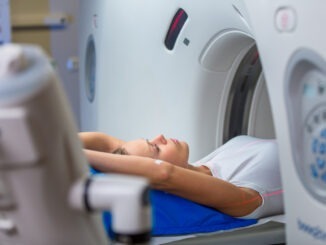
As reported by the BBC, the waiting list for hospital treatment has hit a record high of seven million in England, latest figures show
Hospitals are carrying out 12% fewer operations and treatments than they were before the pandemic.
Surgeons said it was really frustrating as operating theatres were not being used due to a lack of beds and staff.
They say it is not unusual to find surgery cancelled at the last minute as staff are unavailable or intensive care and ward beds are full with other patients.
“It’s tough on patients and tough on staff who want to get on and treat patients,” said Tim Mitchell, vice-president of the Royal College of Surgeons of England.
“Without treatment, the health of patients can deteriorate.
“Not only do we need to get back to where we were before the pandemic, we need to do more if we are going to tackle the backlog.”
NHS England data shows that in the past year an average of nearly 257,500 inpatient treatments, including hip and knee replacements, have been performed each month.
That is 12% lower than the year before the pandemic.
Outpatient clinics, which include minor procedures, tests and assessments, are down by four per cent to just over 1m a month on average.
The struggle to return services to full strength is why the backlog is growing, because the number of new referrals for treatment has not actually gone up above its average before the start of the pandemic.
This has surprised many in the health service, because it was always expected there would be a lot of extra demand at this point given how many people did not come forward when covid first hit.
Mr Mitchell said there was likely to be a lot of hidden demand out there with people either still staying away or struggling to make it on to the waiting list because of pressure on GP services.
Ministers have warned it may be spring 2024 before the backlog starts to fall in England.
Saffron Cordery, of NHS Providers, which represents hospitals, accepted there was “still a long way to go”.
But she added: “Trusts are working incredibly hard to recover ground lost in tackling care backlogs.”
Siva Anandaciva, of the King’s Fund think tank, said the problems were “fundamentally” linked to a lack of resources.
“If you look at other countries, the NHS has fewer doctors, nurses and hospital beds.
“Even the most efficient system in the world can only get through so much work if it hasn’t got the fundamental resources it needs.”
But an NHS England spokeswoman said the health service was “making significant progress”, having virtually eliminated two-year waits and making inroads on the number of people waiting 18 months.
She added: “There is now considerable investment in surgical hubs and diagnostic centres that will help to protect elective treatments from wider pressures, especially in future years, and increasing use of technology like robotic surgery and dedicated day case units, which help increase the amount of elective procedures that can be carried out.”



Be the first to comment